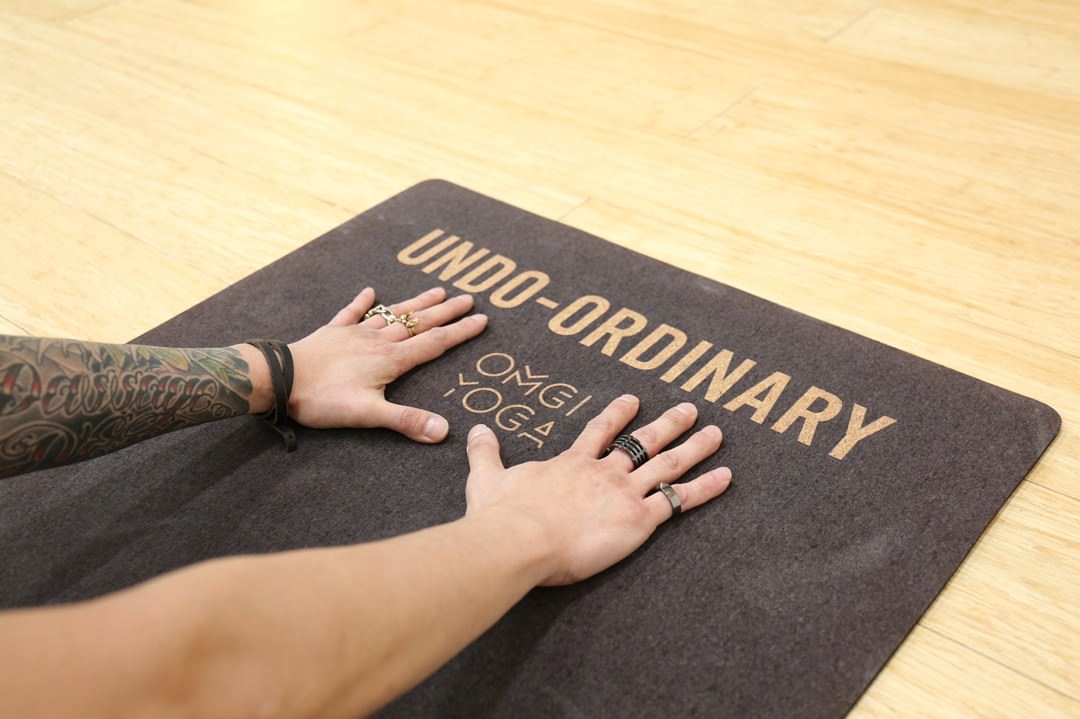"I always do kind of come back to (this point): you're wearing red white and blue. So you kind of have to put on that face, that kind of demeanor."
So says Shawn Johnson in a video for yahoo news in response to the recent - or perhaps lingering - onslaught of social media criticism directed at gymnast Gabby Douglas. Douglas has been under attack this past week regarding her 'unpatriotic decision' to stand at attention instead of holding her hand over her heart during the gold medal ceremonies for the gymnastic's team division.
Shawn Johnson, the former Olympic gymnastics darling who captured America's heart prior to taking silver in the all-around competition in 2008 at the Beijing games, has recently made several public statements about the brutal pressure of perfectionism within the sport of women's gymnastics, including her own struggles with an undiagnosed eating disorder throughout the latter half of her career, and the unbearable pressure she felt throughout the 2008 games as documented in her short film for the organization, I Am Second, which details Johnson's own 'failures' to capture the all-around gold in Beijing. Given Johnson's vocalness towards critiquing perfectionism within her own sport, it was surprising to hear Johnson critique Douglas with such a rigid remark.

Yet Johnson's statement is telling. What she calls, "that face, that kind of demeanor" that Gabby Douglas did not display during the Rio gold medal ceremonies, is indicative of a larger problematic social sentiment of how we perceive female athletes: through the non-performance based lens, in which gender appropriated appearance and behavior supersede athletic performance, and in turn, play heavily into how we value female athletes.
Problematically, the light, bubbly innocent demeanor that has been historically correlated to (and expected of) female gymnast's personalities, is essential to these athlete's revenue stream, serving to promote or deplete public sentiment and support surrounding their professional careers. Female athletes who look more traditionally feminine, who appear girlish or modelish in form, or who display the outward personalities of ingenues often gain the most advertising dollars, the promotional campaigns and the accolades by fans. As Anna Kronikova has taught us, appearance over performance. Meanwhile, those female athletes who don't fit these upheld feminine molds — many of them of non-European decent like Serena Williams — are categorized as "less than" female.
In extreme cases, these female athletes experience a sports career often plagued with accusations of bestiality and open calls (and vulgar sex tests) to answer the question of their gender identity. More often than not, these "less than" female athletes are simply just ignored by the press...which puts them at a disadvantage point to make money off of endorsements or partnerships. This is especially true for sports that pride themselves on strict gender scripts like gymnastics — where bulging muscles that emerge from often underdeveloped female bodies are clad with $1,200 rhinestone leotards, sparkling bows, and an athletic career that ends before the gymnasts are old enough to legally drink alcohol.
That's why Johnson's statement is so important: it reveals is just how ingrained and subtle sexism within elite sports really is towards women athletes... so much so that even former participants themselves struggle to identify its subversive presence in the moment, and subject harsher standards towards their own peers, especially in comparison to their male counterparts.
The level of scrutiny displayed towards women's sports is not characteristic of men's gymnastics and certainly not characteristic of the standards we hold our most celebrated male Olympians too. Did Michael Phelps have to put on a happy face when staring down South African Chad Le Clos as he danced in front of him? Or when Phelps laughed his way through the national anthem on the podium after receiving his gold medal? Has ANYONE in the press come down on the bro-culture of Ryan Lochte and his gang of fully grown adult delinquents called the US men's swim team acting like frat boys while representing our country in Rio?
The answer is no. Male athletes are allowed to be angry. They are allowed to show their competitive edge- the expression of which most often starkly juxtaposes post competition smiles during photo ops - without having a severe social consequence. They are allowed to go so far as to be delinquents while representing their country without us pointing a finger of shame at them. Men are allowed to show that part of their soul that wants nothing more than to win: it's raw. It's human. And as Phelps showed us, often, it ain't pretty.
But male athletes don't have to be pretty. In fact, we as a society praise them for their unprettiness. We praise male athletes for asserting themselves, especially if they are pissed off about something. In fact, the one thing we don't want to see our of our men is any sort of doubt, fear, or worse, tears. We want, support and uphold the allowance for our boys to be boys. To fight. To shout. To laugh. To break the rules. To take up space. Our male athletes aren't socially policed, penalized or even kicked out of their athletic events for their expression of emotive reactions.
While men are given the benefit of the doubt, sympathized and praised for their pure display of "heart", female athletes have historically been met with the rigid policing of their bodies as well as their emotive state. This is especially true within the sport of gymnastics, which seeks to somehow restrain the physical power and athletic feats of these young women by caging them into a docile dollhouse of girlhood. Check out this article from 1862, Physical Culture for Women- The New Gymnastics, in which the 'new' sport is described as, "attractive and far less deleterious than stage dances…the dresses worn are well calculated to give perfect play to the limbs. Some of the ladies merely assume their last summer bathing-dresses, and look eminently pretty and graceful in them."

As this excerpt illustrates, the popularity of gymnastics grew in our country as a way to expand traditional docile behavior expected of wealthier American daughters. By our standards now, this post from 1865 seems antiquated. Yet current gymnastics culture still upholds the traditional expectations of the sport's growing popularity, most recently labeling the Final Five (as well as previous gymnastics Olympians) as "America's Sweethearts," positioning these perfect young women as our nation's girlfriend or daughters, instead of the bad ass athletes they are....athletes who catapult themselves down runways at speeds of 17 miles per hour, flipping as high as 13 feet in the air, and using torque to muster angular velocity in order to pull off the combination of flips they land perfectly (flip combinations average about two flips per second, btw).
There's no greater display of this docile expectation than this past week's commentating efforts, care of NBC Olympic host Al Trautwig. As the Seattle pi captured in their report of Sanne Wevers, who took the gold medal beam spot from the heavily favored Simone Biles, Trautwig's remarks show how the culture of gymnastics still upholds the fanciful imagery of gentle, girlish idealism within the sport.
"After the camera showed Wevers writing in a notebook, Trautwig wondered if it was a diary. 2008 Olympic all-around Olympic gold medalist and NBC commentator Nastia Liukin explained how the Dutch gymnast was calculating the value of her routine to make sure she got the proper score.
Trautwig forged ahead with a remark both insipid and insensitive to many female athletes.
"She may have been writing down her start score," he said. "But I'm going with, 'Dear diary, I'm leading the Olympics!'"
Gymnastic's culture revolves around making gymnasts appear to be the ultimate ingenue, just waiting for a boy like Zach Efron to whisk them off into a Disney fairytale, instead of portraying them as, you know, some of the world's most powerful athletes. As Robert McCain writes in an Op-Ed for the New York Times on the 1988 Olympics,
"We like to see tiny teenage girls jumping all over the place like magical fairies. But we don't want to see any little boys doing the same…of course a well-developed, powerful woman would not fit into the sport, not because she is encumbered by her body and needs a second class category, but because the sport is designed to exclude her. She has no opportunity to perform on the equipment the well-developed men display their strength on, like parallel bar and rings."
Pretty much anything that relates to gymnastics culture feels as if you've slipped back into your elementary school days, playing make believe with your Barbies at a giant sleepover with your bestest friends from third grade. Like the Hersey's commercial of 19-year-old Simone Biles opening the brand's candy wrapper with a message written on it by her "future maid of honor". Or when 16-year-old Laurie Hernandez told People she loves to giggle until she can't breathe. Or even oldest Team USA gymnastic's member, 22-year-old Aly Raisman, whose nickname, "grandma"comes off reminiscent of that time in junior high where we all thought 22 was so old and we would all be married and our lives would be so over because oh my gawd, what's there to even celebrate anymore after you turn 21? Like insurance? Who needs that? #ForeverYoung #TwentyTwo #TaylorWroteASongAboutIt.
The question begets whether or not this kind of gendered pressure is psychologically and mentally healthy for female athletes within sports like gymnastics. Certainly, super-stars Simone Biles, Aly Raisman and Laurie Hernandez don't seem to be affected by this. They very much fit the ideal gymnastics girl persona. But for the athlete like Gabby Douglas who has clearly grown up and perhaps, away from this subscribed girlish standard of the sport-at least when it comes to competition time - the backlash is severe.

Photo Courtesy Dallas News
Back when we first met Gabby in 2012, she was an incredibly acclaimed athlete who stood at the top of the podium as the all-around winner at the London Olympics as a sixteen-year-old. The flying squirrel was everything gymnastics culture expected her to be: doe-eyed, innocent, fresh, and young. This time round , despite Douglas taking third overall in the all-around qualifications at Ri0 (she was not allowed to compete due to a two competitor per country maximum for which Biles and Raisman both qualified ahead of Douglas), neither Douglas' aging appearance, performance, nor her demeanor fits into the subscription of being America's gold winning girlish sweetheart.
Shawn Johnson noticed this in her yahoo coverage of Douglas, stating, "I think Gabby Douglas is a completely different competitor than we saw in 2012. I think she's more mature, she's more serious, she has more to kind of defend."
Yet at 20-years-old, a lot of what Douglas has to defend, is the natural development of a body and a mind that has grown away from the girlhood cultish nature of the sport and into an adult who is clearly more cognizant to the realities of the culture surrounding the sport. In fact, one could say that by observation, Gabbi's personality is the most mature of the Final Five: focused, serious, supportive, yet always cracking a smile and applause when appropriate. Yet somehow, the public and media struggle to figure out what to think of this incredibly normal process we call growing up: a biological and psychological occurrence that one would hope takes place when a girl transitions to a woman.
Yet the only one who seems aware of this process is Douglas herself, who has awakened out of fairytale gymnastics world and into the very adult realization that the culture of the sport has locked her into a dollhouse, a playground for girls to be 'girls', which includes sparkly outfit changes, bows, boys and everything else that is sugar and spice and everything nice. No frowns allowed. No no-smile, smiles. No not singing the national anthem with your hand over your heart and a big grin across your face like the good American sweetheart you are. In the meanwhile, Douglas' act of not smiling shows she is over it, displaying her true maturity as the woman she has grown into, both physically and mentally.
Yet the conversation around Gabby Douglas is important because it is part of a larger conversation we need to have about women in sports and more specifically, about female gymnastics culture. It's a conversation where we, as a society, need to wake up and realize this spoonfeed, "post" feminist message we've been feeding little girls, where they can "be anything" and "do anything" and "say anything" isn't real. In fact, it comes with heavy consequences - especially regarding the emotional and psychological damage we place on women who choose - or simply unintentionally display - reactions or appearances that go against the sugar-coated girlie narrative that imprisons female athletes in a sports culture forcing them to remain as girls when they in fact, are developing into women.
At the end of the yahoo interview with Johnson, a fellow commentator asked Johnson how she was going to remember Gabby Douglas as an Olympic gymnast.
"I think me and the entire world will remember Gabby as the all-around winner in 2012. That will never go away." Johnson responded.
For Gabby's sake, and for the future of sport, I hope people remember the woman Gabby Douglas has become - the strength she showed in these Olympic games, and the legacy she has made on the sport. Most importantly, we at UNDO-Ordinary hope Gabby continues to smile at her own will, and no one else's.





